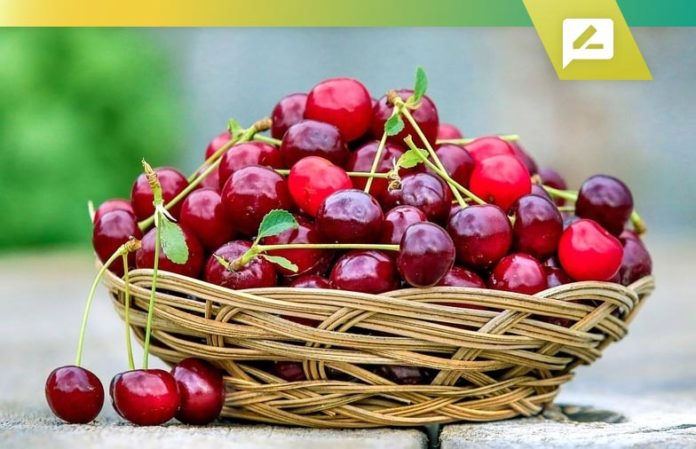Advertiser Disclosure: This site has an affiliate relationship with some offers in this review and is a participant in the Amazon Services LLC Associates Program. Amazon and the Amazon logo are trademarks of Amazon.com, Inc., or its affiliates.
Gout is a painful form of arthritis that can affect different parts of the body, such as the ears and the small joints on the hands, wrists, ankles, and knees. The condition is characterized by symptoms like swelling, acute pain, intense tenderness, and inflammation in the joints. While the exact cause of gout is not known, high concentration of uric acid in the body is one of the proven causes.
Other possible causes of gout are genetics, lack of physical exercise, excessive consumption of alcohol, too much stress, excessive protein consumption, excessive intake of vitamin B3 or niacin, and kidney disorders, among others. Men are more likely to suffer from this condition while females typically only become vulnerable to gout after menopause.
Gout is also linked to other serious health problems such as hypertension, cardiovascular problems, and diabetes, among others. This means that it is important to get medical attention as soon as you notice any symptoms of gout.
However, before modern medicine was invented, people used to find solutions to such problems by looking to a variety of natural herbs. Not only were those natural remedies highly effective, but also safe and secure.
The Advanced Living gout guide involves both top supplementation options as well as the best whole foods to start consuming more of that have been known or associated to provide natural relief for gout related effects.
Contents
Top 5 Best Gout Supplements in 2023
The following natural gout health supplements were researched on a specific set of criteria outlined in our research as well as our review processes. All five of the top gout wellness products were based on the company's reputation, the product's effectiveness and the overall ratings each brand has garnered over the years. These featured gout supplements are some of the most popular products on Amazon.com and deserve a second look at helping reduce high uric acid buildup in the blood and body which can have beneficial pain relief effects with continued used.
Let's rank the top 5 gout supplements and review the best features of each individual product.
NutriGout

NutriGout is the top formula on this list to relieve severe flare-ups in the joints and toes before they ever begin. Since the onset of severe pain and be unpredictable sometimes, the supplement helps to create more stability in the individual’s condition. Even though there are many people that link this problem to aging, the use of antioxidants may be a helpful in improving the joint’s flexibility.
The remedy, which helps to prevent the buildup of uric acid, includes a proprietary blend of ingredients. Though consumers are not told exactly how much of the ingredients are included, they will get the support of turmeric root, celery seed, dandelion extract, bromelain, devil’s claw, and milk thistle.
Even though the user only needs a single capsule for each serving, consumers can purchase the 60-capsule bottle for $24.95. Plus, the creators offer a money-back guarantee to any user that is unsatisfied, even with a purchase from a third-party website.
Tart Cherry Extract by Zhou

This Tart Cherry extract provides users with a cleanse that can help eliminate uric acid from the body, which builds up in the joints and causes difficulty and pain with mobility. Along with the use of tart cherry, consumers will also find celery seed in this formula, allowing the body to limit the amount of uric acid that the body develops over time.
Tart cherry serves other purposes in the body as well, as it supports the body with melatonin, the sleep hormone. In doing so, the user can rest more easily and can get the relief that their joints need from the stress of movement during the day. Tart cherry also contains a high amount of antioxidants, which protects the muscles from succumbing to oxidative damage.
Consumers can purchase the 60-capsule bottle on Amazon for $18.89, though signing up for a subscription to get an additional discount on each purchase. The recommended dose is two capsules daily.
Total Cleanse by Solaray

Total Cleanse by Solaray focuses on supporting healthy uric acid levels by flushing it through a cleanse. In cleansing the body of excess uric acid, consumers can walk and move their legs more easily without any buildup to hold them back. Uric acid is produced as a result of the breakdown of purines, which can be found most frequently in foods that are high in protein. The only way to offset these effects is with the right balance of ingredients.
To create these effects, the formula is rich with supporting ingredients, like vitamin C, tart cherry, bromelain, celery seed extract, and quercetin. Turmeric, which is known for its ability to reduce inflammation and sooth the joints, is also found in this formula.
To get the desired effects, consumers can take two capsules of this treatment per day. Amazon already offers this remedy for $22.11. However, consumers can cut down their price by 5% or more by signing up for a subscription that ships a new bottle each month.
Purge by Eu Natural

Purge offers consumers a well-rounded approach to the flushing of uric acid, balancing the body to reduce inflammation and promote better flexibility. More specifically, this remedy is made for individuals that want to relieve the inflammation that uric acid causes throughout the entire body, especially the joints and muscles.
The only downside about Purge seems to be the fact that all of the ingredients are combined in a single proprietary blend, which means the exact potency and amount of all of the ingredients included is unknown. Still, the Cleanse Complex includes celery seed extract, tart cherry, and other ingredients that are association with the inhibition of uric acid in the body.
To get the results that the creators advertise, the user will need to take one capsule twice daily. Luckily, the bottle contains a one-month supply. While Purge is not in stock at the time of writing, the 60-count bottle is due to be available on Amazon on March 3rd, 2023 for $29.99.
Urcinol by PurMEDICA

Urcinol is one of the oldest remedies on this list with a decade of serving consumers. The treatment relieves pain and discomfort from joints at a rapid pace, while balancing uric levels to relieve inflammation.
Like many others, consumers will find that this supplement offers a proprietary blend of ingredients to reach the desired benefits. Some of the ingredients in this blend include Banaba leaf, acai fruit extract, turmeric, milk thistle, and artichoke.
The use of Urcinol requires two separate doses during the day – one in the morning and one at nighttime. Though the user only needs one of the capsules for each of these doses, consumers need to drink no less than five glasses of water during the day to remain hydrated and to promote better absorption of the ingredients.
Consumers can purchase Urcinol from Amazon for $39.93. Presently, the website offers a coupon to get a discount on the purchase, but the promotion may not last long.
BONUS: Life Tones Uric Acid Support
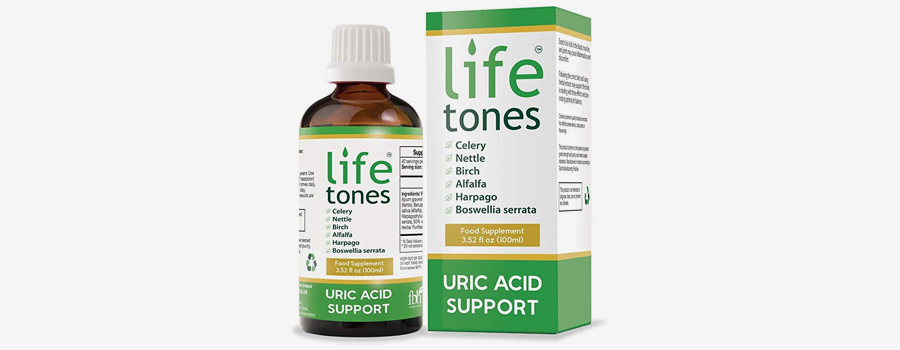
Life Tones is used to metabolize uric acid, allowing it to be expelled, instead of building up in the joints. As a result, it can reduce pain, irritation, inflammation, and more that would otherwise be caused by this crystallized acid in the joints. The liquid form even promotes better absorption than a capsule that has to first be broken down by the body.
This supplement gets its power from the included proprietary blend, which prevents consumers from seeing exactly how much of each of the ingredients are included. However, it does offer a substantial amount of ingredients to contribute to the effects, including celery seed, nettle leaf, alfalfa, Boswellia serrate, and birch. Even with all of these ingredients, the taste is natural, containing absolutely no sugar.
Life Tones is available for $34.95, proving the user with a 3.38-ounce bottle. Unlike the other formulas on this list that are available within a capsule, Life Tones is a liquid, and consumers will have to portion out about half a teaspoon into a glass of water to prepare the remedy. It is meant to be taken three times a day to truly get the relief.
After reviewing the 5 best gout supplements of 2023, it's time to expand upon natural gout treatments that can act as a great outline for helping those in need of a remedial solution.
Top 26 Natural Gout Treatment
Trying these 26 natural treatment for gout will help fight the symptom and prevent the aforementioned related health problems from manifesting.
You can reduce the discomfort from gout with products you already have in your home. Learn about natural remedies for gout, such as ginger, cherries, and bananas. You don't necessarily have to worry about overpriced medications.
1. Ginger

Thanks to the variety of conditions it treats, ginger is one of the most popular home remedies, and it is particularly effective at alleviating the symptoms of gout. Ginger is consumed by simply adding it to regular food. It can also be used as an additive by adding it to food while it is being prepared in the kitchen.
Some people consume it in the form of ginger tea whereby the roots are boiled with tea leaves, but for fast relief of gout-related joint pain, ginger root paste can be applied on the painful areas directly.
2. Cherries

Cherries have antioxidant properties that make them good home remedies for gout pain. Cherries also help reduce inflammation and gout flare up thanks to the anthocyanin they contain. To treat gout using cherries, try eating 15 to 20 if these fruits per day. Alternatively, you can drink a glass of concentrated black cherry juice at regular intervals, twice or thrice per day to get relief from gout pain.
Apart from cherries, you can also try other dark colored antioxidant rich fruits such as blueberries, blackberries, purple grapes, and raspberries.
3. Water

Drinking water facilitates the excretion of uric acid before it gets a chance to crystallize. Make a habit of drinking pure water every 30 to 40 minutes. You can substitute it with other healthy beverages such as lime juice, coconut water, and fruit juices.
4. Apple Cider Vinegar

This is normally used to treat acid stomach and headaches, but it also helps treat gout and arthritis. The acidity in the apple cider vinegar solution helps relieve acute pain, but you can also use the remedy to boost your body’s anti-inflammatory response by adding honey.
5. Baking Soda
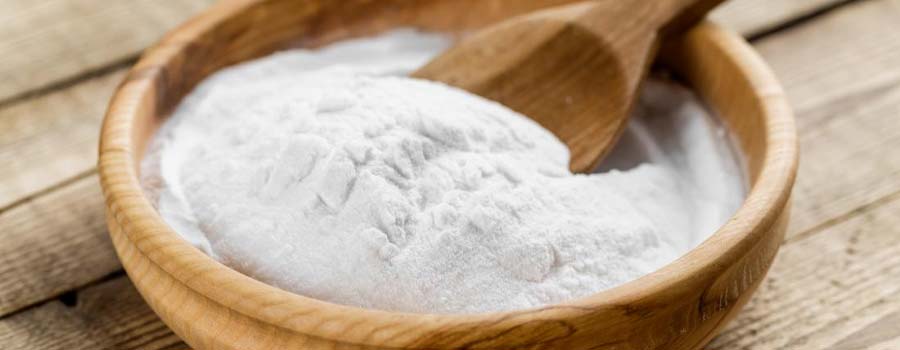
This can help lower uric acid levels in the body, giving you relief from pain. Simply drink a solution consisting of half a teaspoon of baking soda in a glass of water at least four times a day to relieve gout.
6. Lemon Juice
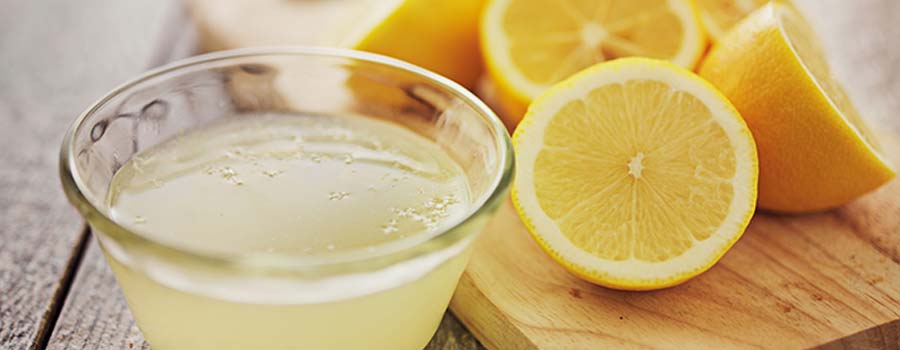
Use this to alkalize your body, neutralizing uric acid. You can mix lemon juice with baking soda then drink the solution 3 times a day.
7. Epsom Salt
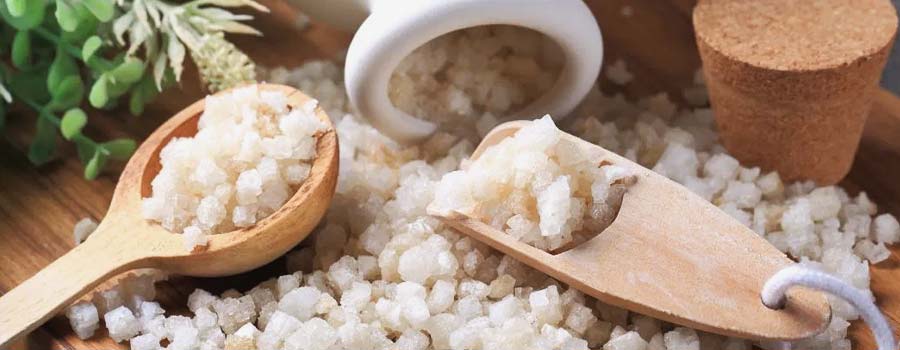
It contains high amounts of magnesium that will lower blood pressure and improve heart condition. To treat gout, soak the affected part in warm water fixed with Epsom salt to relax and soothe painful and aching muscles.
8. Bananas

These contain high amounts of potassium which helps convert uric acid crystals into a liquid form that can be excreted. Bananas are also rich in vitamin C, which helps manage pain and inflammation.
9. Apples

It is a good healthy habit to eat an apple a day. Apples contain an acid that neutralizes uric acid to relieve gout pain. If you don’t like the fruit, try the juice.
10. Carbon Dust
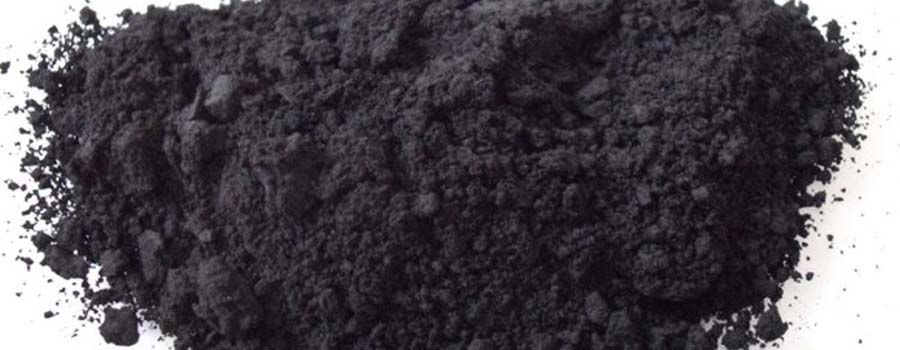
Bathing in warm water mixed with carbon dust can remedy gout pain. The charcoal absorbs uric acid, reducing its negative effects on the body. Either soak in a bath with a cup of charcoal powder or make a paste of this powder then apply it on the affected area.
11. Devil’s Claw

Devil’s claw was used in traditional medicine to cure aches and pains, but it was recently found to be effective at treating gout symptoms. It, however, isn’t recommended for people suffering from diabetes and other blood diseases.
12. Elm Leaf Tea
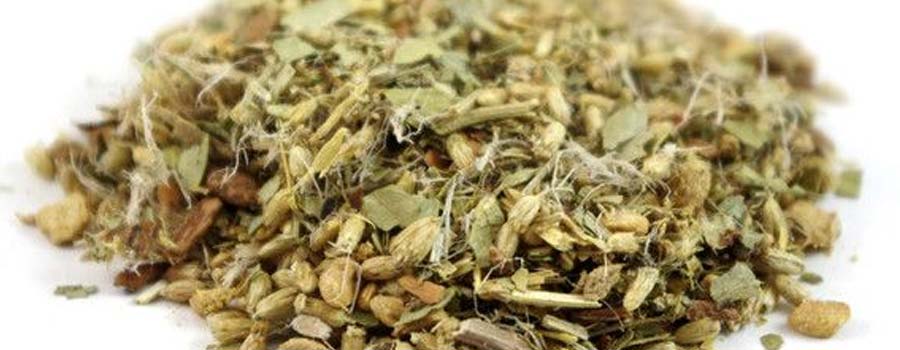
This is used for quick pain relief, making it good for treating symptoms of acute gout.
13. Alfalfa
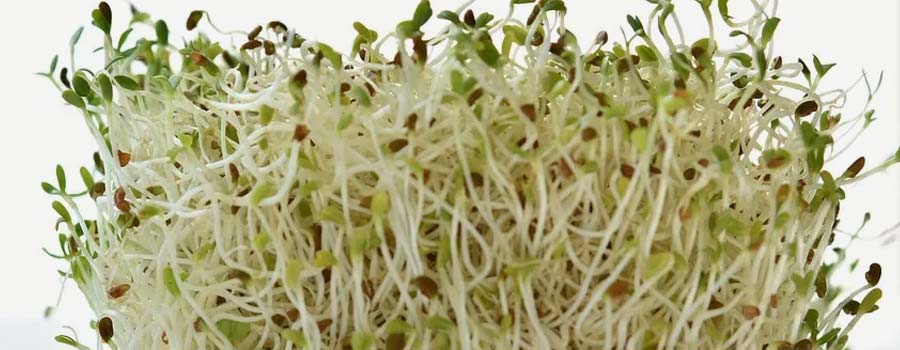
This is a very good source of minerals to help reduce the content of serum uric acid in blood. It also prevents the deposition of uric acid, making it an effective remedy for gout.
14. Chicory
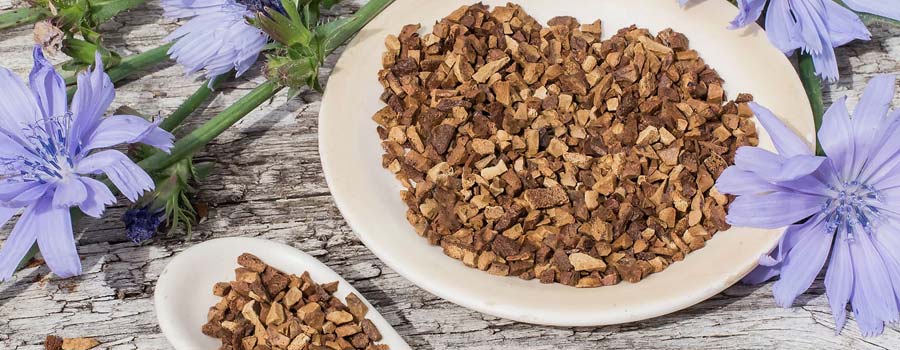
This herb is commonly mixed with coffee and has been widely used for over 2000 years to treat conditions like arthritis and gout. Simply boil a pint of water, add one ounce of chicory root powder, then drink the beverage.
15. HydroTherapy

Simply bathing in warm water can help relax joints and muscle. This can provide some temporary relief from gout pain.
16. Juniper Oil
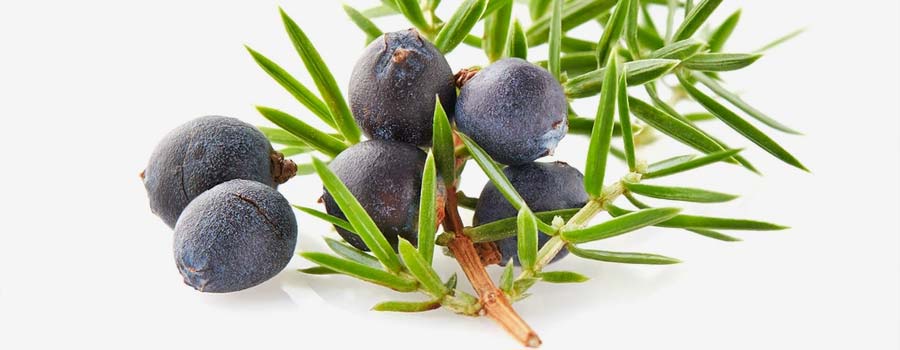
Place a warm compress made up of juniper in on your painful swollen joints to help break down the toxic deposits there.
17. Castor Oil
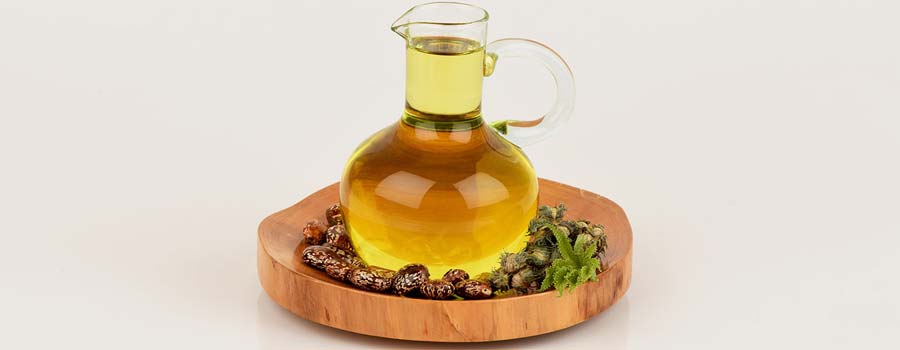
Applying warm castor oil on affected areas can reduce joint pain.
18. Safflower
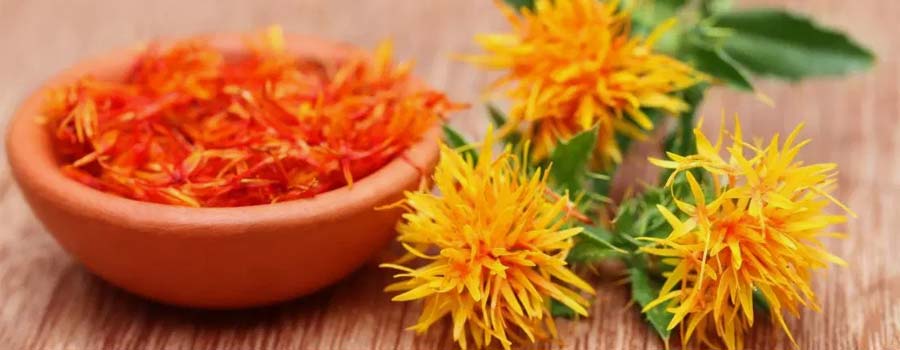
This can cure gout symptoms. Taking a capsule of safflower per day will help reign the condition in.
19. Habichuelas (French beans)
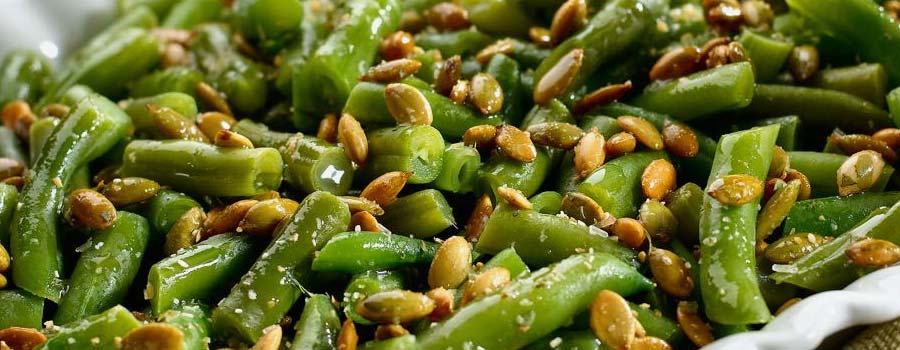
Consuming French beans or French bean juice for a month can aid in gout recovery.
20. Honey

Mix honey and apple cider vinegar to help treat gout. Take this mixture two times a day. You can also add honey to other favorite beverages, like hot tea.
21. Fruit Juice Mixes

Prepare a mix of cucumber, beet, and carrot juice. These vegetable can potentially cure some symptoms of gout.
22. Mustard
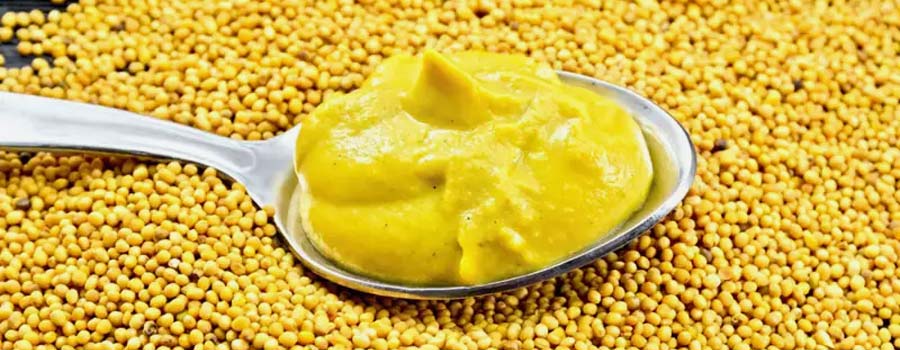
Mustard has ingredients that calm the nerves to reduce gout symptoms. Simply prepare a paste of mustard powder and wheat powder, then apply it on the affected areas. Leave the paste on overnight to maximize the benefits.
23. Belladonna

This is effective at treating inflammation, swelling, and discoloration. It also helps relieve pain.
24. Colchicum

This is an effective treatment for joint pain and redness associated with gout.
25. Aconite

This remedy provides quick relief from painful attacks of acute gout. It is very effective at easing pain in the joints of the feet.
26. Ledum

This is also helpful for healing the joints of the feet.
How To Prevent Gout
Once you know you have gout or are at a higher risk for developing it, you should take the time to make a few lifestyle changes to help keep gout at bay as much as possible.
Be sure to drink plenty of water, eat a healthy diet, avoid alcohol, and exercise at least 3 days a week to ensure that you are doing everything you can to stave off the next onset of gout.
Frequently Asked Questions About Gout
A: Gout is a painful type of arthritis that develops when uric acid builds up in the body, causing uric acid crystals to form in the joints. Your big toe is the most common site affected by gout, although gout can also affect other joints, including the knees, ankles, heels, and toes. Affected areas of the body will be red, swollen, painful, and warm.
A: Gout is caused by the buildup of uric acid in the body. Genetics also plays a significant role in the development of gout. Being overweight and male also increases the chances of developing gout, as does lead exposure and alcohol consumption.
A: Symptoms of gout include warmth, pain, swelling, and extreme tenderness in a joint. You might also notice very red or purplish skin around the affected joint. As the first gout attack subsides, the skin around the affected joint may peel and feel itchy. Gout most commonly occurs in the big toe (50% of all first time gout cases occur in the big toe), although it can also extend to other joints.
A: Typically, there is no cure for gout. However, users can treat gout by managing the symptoms associated with the condition. Treatment relies on managing symptoms like soreness, discomfort, swelling, and inflammation of affected areas, and results are usually obtained through a combination of lifestyle changes and medications.
A: Gout is treated using medicine like colchicine, which can reduce symptoms of a gout attack. Doctors may also recommend using non-steroidal anti-inflammatory drugs (NSAIDs) to decrease inflammation and pain in joints and other tissues. People with gout who are unable to take colchicine or NSAIDs may be given corticosteroids (via pill or injections into the joint).
A: Gout is the most common type of inflammatory arthritis for men, impacting about 5% of adult men in developed countries. In contrast, only about 2.5% of women in developed countries have gout.
A: Key risk factors for gout include:
- Diet: Red meat, certain seafoods (like shrimp and oily fish), alcoholic beverages (especially beer), and sugar (especially fructose from soft drinks) all increase uric acid levels.
- High Blood Pressure: High blood pressure and the medications used to treat high blood pressure (diuretics) increase the risk of gout.
- Medication: Some medications block the excretion of uric acid in the kidney. Diuretics and medications that repress the immune system can increase the risk of gout. Low dose aspirin also increases uric acid levels.
- Obesity: People with high body weight are more likely to develop gout.
- Trauma: Gout can be caused by surgery, heart attacks, or other physical and emotional trauma.
- Kidney Disease: Mild kidney disease can lead to reduced excretion of uric acid from the body.
- Genetics: If someone in your family has gout, then you have a much higher chance of developing gout.
- Dehydration: Lack of hydration can increase the risk of gout attacks.
A: Gout is nine times more common in men than women. It’s also particularly common in people aged 65 or older.
A: Gout cannot kill you directly, although it can cause serious health problems that eventually kill you. When gout is untreated, it can lead to the development of clumps of uric acid crystals called tophi, which can become infected and life threatening.
A: People experiencing gout attacks may find it difficult to stand or walk. Others experience relief from gout-related pain by walking or moving around. Gout attacks in the feet, ankles, and knees can make it difficult to walk.
A: There is no way to cure gout. However, you can treat a gout attack using anti-inflammatory drugs like naproxen, colchicine, or steroids (like prednisone).
A: An acute gout attack will go away on its own even without treatment, although gout that’s left untreated can lead to more severe pain and joint damage. Additionally, proper medication and lifestyle change can help to minimize symptoms and improve comfortability faster during an attack than will happen naturally.
A: Doctors may recommend certain foods to help manage symptoms of gout, including fruits and vegetables, whole grains, low-fat dairy products, and eggs. Plant oils (like olive oil or avocado oil), yogurt, cottage cheese, beans, peas, lentils, mushrooms, asparagus, spinach, nuts, water, oatmeal, lean meat (like chicken), and any fruits with high fiber and low sugar content (like berries or citrus fruits) can also be effective.
A: Foods containing purines should be avoided. The most common purine-containing foods include red meat and organ meat (like liver or kidneys, which are high in saturated fat), seafood (like lobster, shrimp, sardines, anchovies, tuna, trout, mackerel, and haddock), sugary drinks and foods high in fructose, processed foods and refined carbohydrates, and alcohol (especially beer and hard liquor).
A: Gout is particularly common in men over age 65. Risk factors like obesity and excessive alcohol consumption can also increase the likelihood of gout.
A: Soaking in hot water is not typically recommended for dealing with gout. However, it may be an option when gout-related inflammation isn’t as intense. Applying cold or hot water to inflamed joints may also be effective. Some people apply ice packs. Typically, soaking in cold water (not hot water) is the most recommended and most effective treatment for gout.
A: Bananas are low in purines and high in vitamin C, making them a good food to eat if you have gout.
A: Ibuprofen and other non-steroidal anti-inflammatory drugs (NSAIDs) are frequently used to manage acute gout pain.
A: Studies show that exercise has no benefit or effect on breaking up tiny crystals of gout. Exercising a joint that is already inflamed can prolong the inflammation. However, frequent exercise can help prevent future gout attacks. Exercise can also lead to weight loss, and being overweight is a risk factor for gout.
A: Some research indicates that coffee lowers the risk of gout. Coffee may lower uric acid levels, increasing the rate at which your body excretes uric acid.
A: Some of the popular home remedies for gout include warm water with apple cider vinegar, lemon juice, and turmeric. Others soak in a cold bath, apply ice packs, or apply hot or cold water to inflamed joints.
A: Studies show that exercise has no benefit or effect on breaking up tiny crystals of gout in the joints. Regular exercise, including walking, can reduce the risk of future gout attacks and lead to weight loss.
A: Doctors may recommend people with gout wear compression socks to reduce swelling and relieve pain more harmlessly than medication.
A: Kidney disease can cause gout, and gout can also lead to kidney disease. Because uric acid is filtered through the kidneys, the two diseases are related. It’s most common for kidney disease to lead to gout: when you have chronic kidney disease (CKD), your kidneys do not work as well as they should to filter waste out of your body. Many people with early stage kidney disease do not know they have it, and gout can be an early warning sign of kidney disease. Gout can also lead to kidney disease, although it’s less common: gout is caused by too much uric acid in the blood, and this excessive uric acid level can lead to kidney disease and failure. Ultimately, we know there are connections between kidney disease and gout, although it’s not totally clear which causes the other.
A: Cranberry juice or extract increases the clearance of uric acid from the body, reducing the risk of gout and gout attacks.
A: An acute gout attack can last three to 10 days, with or without medication.
A: Baking soda is sodium bicarbonate and may help neutralize acid. However, once baking soda enters the stomach, it turns into water and a carbon dioxide gas. Ultimately, there’s no scientific evidence that baking soda eases gout symptoms, although baking soda remains a popular folk remedy among natural healers.
A: Lemon juice can help balance uric acid levels because it makes the body more alkaline. This means it slightly raises the pH level of blood and other fluids. Lemon juice also makes your urine more alkaline, making your blood less acidic, and lowering uric acid levels in the body. Lowering uric acid levels can reduce the risk of gout.
A: Pineapple contains an enzyme called bromelain that could reduce inflammation. Bromelain causes uric acid crystals to decompose, relieving you from gout-related pain. When taken regularly, bromalin can also prevent repeated gout attacks.
A: Turmeric is a popular anti-inflammatory. Many people take turmeric as a home remedy for gout, and there’s some evidence that turmeric can relieve inflammation and pain – like the inflammation and pain caused by gout.
A: Gout can run in families. Many people who get gout have a family history of gout. However, many people who develop gout have no family history of gout. There are multiple genes that control the elevated levels of uric acid, which makes the inheritance of gout variable.
A: Doctors may diagnose gout by performing a joint fluid test (where a needle draws fluid from your affected joint), a blood test (which measures levels of uric acid in your blood), X-ray imaging, an ultrasound, or a dual energy CT scan. If you think you might be suffering from gout, consult your primary physician as soon as possible to diagnose the disease and seek proper medical treatment.
A: Vegans can get gout. However, gout is more common in non-vegans: purine-rich meat and seafood can significantly increase the risk of gout, and vegans avoid these foods.
A: Eggs are low in purines, which means they should have minimal impact on gout when taken in normal doses as part of a healthy diet.
A: There have been no major studies analyzing the connection between blueberries and gout. However, blueberries are generally healthy when taken in normal doses by healthy adults.
A: No. In fact, WebMD.com specifically mentions peanut butter (along with other nuts and grains) among the “best foods for a gout diet”.
A: Non-steroidal anti-inflammatory drugs (NSAIDs) like ibuprofen 800 can help fight back against a gout attack. Commonly used NSAIDs during an acute gout attack include ibuprofen 800mg taken three to four times per day.
A: Gout can be caused by all sorts of things, including specific foods, drinks, and medicines. Stress can also increase uric acid levels and lead to gout.
A: A heating pad or warm washcloth can help lessen pain from a gout attack. However, excessive heat applied to the area of the gout attack can increase inflammation. If using a heating pad for gout, you should use the lowest setting.
A: Certain lifestyle factors can increase the risk of gout, including dehydration (not drinking enough water).
A: Tea does not seem to increase or decrease the risk of gout, which means it should be safe to drink tea if you have gout.
A: Traditionally, it’s been recommended that people with gout avoid full-fat dairy products, including whole milk and ice cream, as they can increase the risk of gout. However, recent research has suggested that consuming more dairy products – including cheese, yogurt and ice cream – can reduce the risk of developing gout.
A: The fastest ways to relieve gout include taking pain medication, prescription drugs, and NSAIDs (as recommended by a doctor). You may also want to apply ice to the affected joint, take a cold soak, elevate the joint, stay hydrated, and avoid working the joint.
A: Massage therapy can help relieve the pain and inflammation of gout.
A: Ice packs, NSAIDs, and massage therapy can all reduce swelling from gout.
A: Gout is extremely treatable in almost all patients.
A: Women do not typically develop gout until after menopause. Estrogen levels may prevent women from getting gout throughout most of their lives. Post-menopausal women, meanwhile, may have high levels of uric acid, leading to uric acid crystal deposits that cause gout.
A: Gout affects the big toe in 50% of all first attacks. The foot, ankle, knee, wrist, and elbow are also common spots.
A: A medical professional will conduct an exam and discuss your symptoms and health history, asking you about the location of the pain, how much it hurts, and how long the pain lasted, among other questions. You may also be asked to take a blood test to determine your uric acid levels.
Final Word on the Top 5 Best Gout Products
Are you affected by gout? Are you tired of dealing with recurring swelling and pain in the joints? No matter your age or severity of pain, it's never ideal to let it linger and make the body adapt unwillingly where it overcompensates in other areas to accommodate the negative side effects these types of arthritic-conditions can cause in the body's system.
The good news is natural treatments exist in the form of whole foods and quality dietary supplementation options. Whether it be one of the five best gout supplements ranked or utilizing any one of the natural food alternatives, they are great ways to start working towards relieving the arthritic-like pain this undesirable medical condition can cause.
Try these natural remedies and experience the benefits of Mother Nature’s healing power. But, as always, make sure to seek qualified medical help and professional advice from a licensed healthcare provider or service before trying any supplement available. Do more research, ask more questions, find higher quality solutions. The ingredients found in the top ranked gout supplements have the highest association with helping alleviate gout-related conditions. The concentrated extracts are meant to break down the uric acid buildup and provide relief naturally.
















